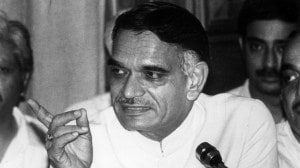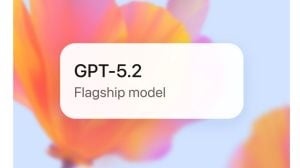Plan to revise curriculum in DU, not everyone on board
With departments given just three months to complete this process, the rationale, methodology and feasibility of the move is being questioned by stakeholders.
 The course revision commenced mid-March and the departments have been directed to submit the final drafts by June 20. (Representational Image)
The course revision commenced mid-March and the departments have been directed to submit the final drafts by June 20. (Representational Image)
Announcing yet another curriculum revision, Delhi University is in the process of revising all of its undergraduate programmes along the lines of UGC’s Learning Outcome-based Curriculum Framework (LOCF) for the 2019-2020 academic session. With departments given just three months to complete this process, the rationale, methodology and feasibility of the move is being questioned by stakeholders.
The LOCF was first floated by the UGC last June as “a framework based on the expected learning outcomes and academic standards that are expected to be attained by graduates of a programme of study and holder of a qualification”.
The course revision commenced mid-March and the departments have been directed to submit the final drafts by June 20.
According to UGC, the LOCF approach to curriculum planning requires that “the teaching-learning processes are oriented towards enabling students to attain the defined learning outcomes relating to the courses within a programme”. It says the objective is to “help formulate graduate attributes, qualification descriptors, programme-learning outcomes and course-learning outcomes expected to be demonstrated by the holder of a qualification” and provide higher education institutes a point of reference for designing teaching-learning strategies and assessing learning levels. While course and programme learning outcomes have been understood to differ for different programmes, the latter is seen to include “subject specific skills and generic skills, including transferable global skills and competencies”.
Unlike the last curriculum revision — the introduction of the Choice-Based Credit System in 2015 — the plan is for revised courses to be implemented not just in DU’s regular colleges, but also in the Non-Collegiate Women’s Education Board and School of Open Learning.
The heads of all departments have been instructed on the composition of course revision committees — the HoD, “department convener”, three “best teachers” and two “top position holder students” — and a set of deadlines.
Head of history department Dr Sunil Kumar said the process is “undemocratic” and lacks academic credibility. “In the communication sent, there’s no asking, no statement on the need for a revision. Selection of ‘best teachers’ by HODs can only be arbitrary and the timeline is unrealistic. It is unimplementable,” he said.
Questions have also been raised about the framework. “These instructions are going out without a single meeting of the Academic Council… There has been no conversation regarding the LOCF. The UGC model itself is very vague, and focused on quantifiables which would apply better to sciences,” said AC member Saikat Ghosh. In a statement, DU registrar Tarun Kumar Das said the proposed schedule was approved during “a detailed consultative meeting” with all deans and heads on March 11.
- 01
- 02
- 03
- 04
- 05































